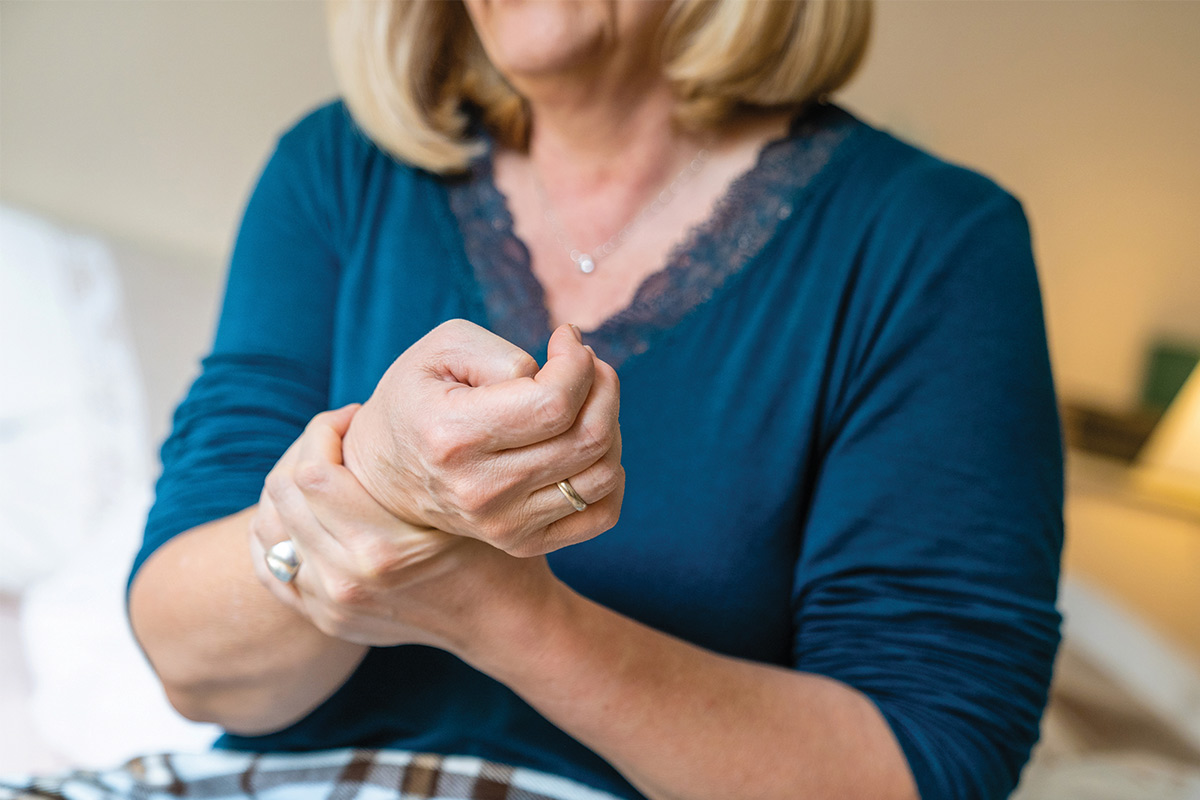Aging Well
A wide range of hand-related issues can be treated by orthopedic specialists.

Understanding Hand Health
Hand problems – from traumatic injuries to chronic conditions – can make even the simplest daily tasks difficult. Signs of pinched nerves, strained tendons, or swelling in the hands can include:
- Tingling, numbness, or weakness in the hand or thumb
- Lack of movement in the hand, wrist, or fingers
- Increased hand, finger, or wrist pain
- Difficulty grasping objects or opening bottles and jars
Common Conditions
Carpal tunnel syndrome involves compression of the median nerve within the carpal tunnel at the level of the wrist, which may result in pain, numbness, tingling, or even weakness in the hand.
Trigger finger is an inflammatory condition resulting in the flexor tendon of a finger or thumb becoming stuck under a tight pulley, which results in catching, popping, or locking when attempting to bend or straighten the finger.
Thumb arthritis is caused by the deterioration of the cartilage at the base of the thumb, causing pain, decreased grip strength, difficulty opening jars or bottles, and reduced range of motion.
Dupuytren’s contracture is a condition where one or more fingers bend toward the palm of a person’s hand and cannot straighten completely.
Treatment and Outlook
Thankfully, these conditions can be treated effectively by orthopedic hand specialists, with many treatment options available to relieve pain and restore movement. Nonsurgical options include anti-inflammatory medications, hand therapy, steroid injections, and the use of a brace or splint. Should nonsurgical treatment prove ineffective, surgery may be recommended. With a personalized treatment plan, patients can enjoy restored, pain-free hand function and resume daily activities with ease.
An Expert Weighs In
Meet the Author

Rachel Studebaker, BA, English, Summa Cum Laude
Rachel Studebaker is a graduate of Lee University where she earned a Bachelor of Arts degree in English with a minor in advertising. While attending Lee, Rachel served as editor-in-chief and creative director for the school’s biannual publication Vindagua and was a member of Sigma Tau Delta English Honors Society. As managing editor for CMC Media & Marketing Group, she is responsible for the development and completion of 16 publications involving health, wellness, business, sports, and lifestyle articles published in print and online for HealthScope®, CityScope®, and Choose Chattanooga® magazines – premier publications serving S.E. Tennessee and North Georgia. Additionally, Rachel has led digital marketing initiatives for CMC Media & Marketing Group as well as the development of content for the introduction of Choose Huntsville™, Huntsville Resource & Relocation Guide™ for Huntsville, Alabama.

